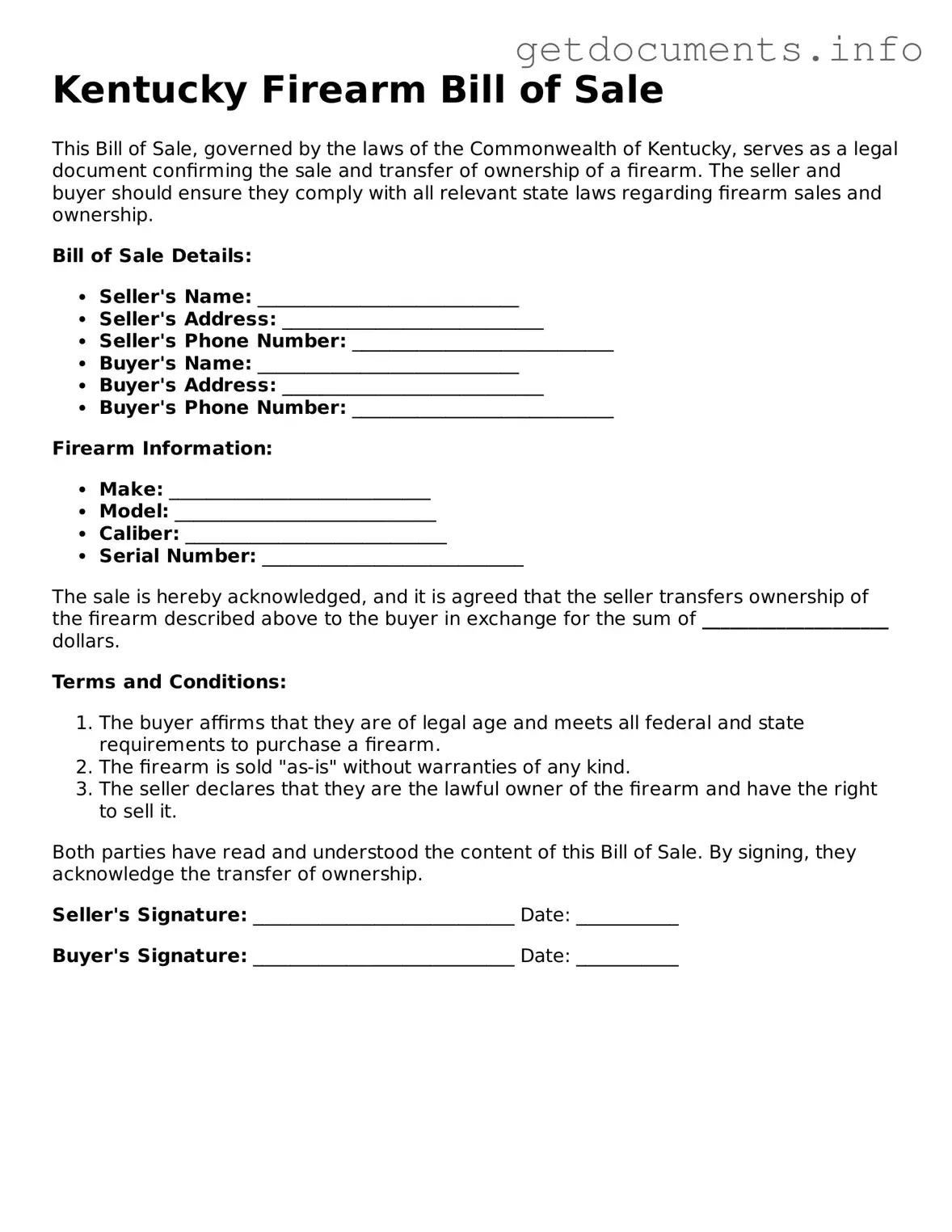Free Firearm Bill of Sale Template for Kentucky
A Kentucky Firearm Bill of Sale form is a document that records the sale of a firearm between a buyer and a seller in the state of Kentucky. This form serves as proof of ownership transfer and includes essential details such as the firearm's description, the parties involved, and the sale price. Ensuring that this form is properly filled out is crucial for compliance with state laws.
Fill out the form by clicking the button below.
Access Firearm Bill of Sale Editor

Free Firearm Bill of Sale Template for Kentucky
Access Firearm Bill of Sale Editor
Got places to be? Complete the form fast
Fill out Firearm Bill of Sale online and avoid printing or scanning.
Access Firearm Bill of Sale Editor
or
⇩ PDF File
